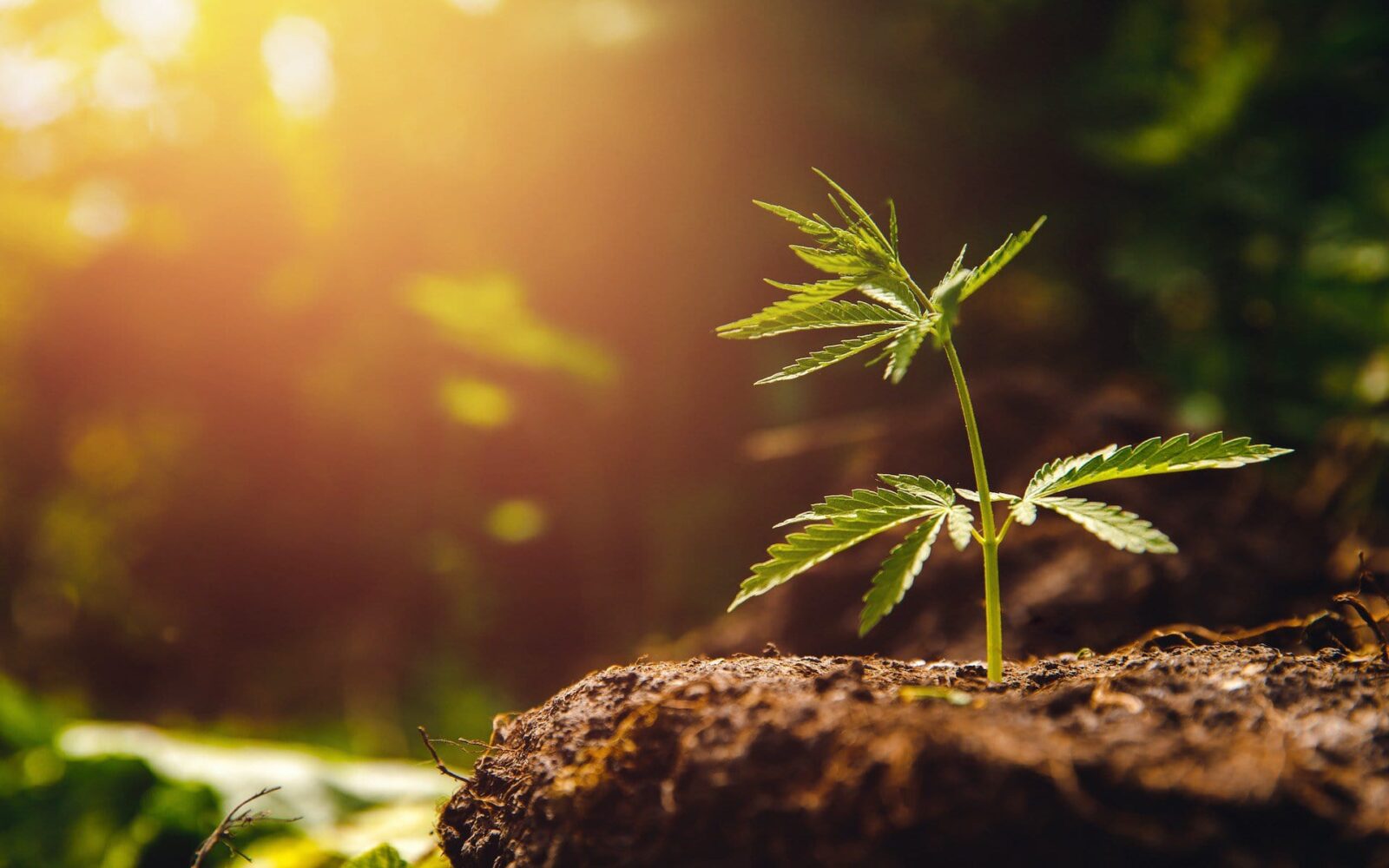
Cannabis Plant | Source: Ma’na Organix
There’s no denying it: cannabis is having a moment.
It’s a green, leafy plant that is used for recreational and medicinal purposes. It can be smoked, vaporized, ingested through edibles, or applied topically. AND…It’s been around for thousands of years, but it was only recently legalized for recreational use in many U.S. states. That means a lot more people are using it now than ever before—and unfortunately, as much as we love it, it can lead to some unintended consequences.
But as legalization spreads across the country, the focus on “weed” is shifting from getting high to getting green. In addition, many people are concerned about the health of their local environment as well as our climate.
But what exactly does that mean?
Well, for starters, it’s not just about your joints or vape pen. It’s about the entire supply chain of getting weed to your hand. This means that modern day consumers are now asking themselves questions about the environmental impact of their weed consumption. And as a result, dispensaries are looking for ways to reduce their environmental footprint.
So how can you help to reduce that impact? We’ve got some tips in this article!
How to Reduce the Environmental Impact of Cannabis Consumption
Cannabis consumption is a big deal. But it’s also an important one.
As cannabis becomes more widely accepted and legalized, it’s important to consider the impact that its production and consumption can have on the environment. While cannabis has the potential to be a sustainable and eco-friendly crop, there are also potential negative impacts to consider.
From the cultivation and harvesting of the plant to its transportation, processing, and packaging, all those steps have an impact on our environment—and some of them are pretty big!
Support Eco-Friendly Cannabis Growth
One major concern is the amount of water that cannabis cultivation can require. Depending on the location and growing method, cannabis can be a thirsty crop, using up large quantities of water. This can be especially problematic in areas with limited water resources or during drought conditions.

Cannabis cultivation can also have impacts on the local ecosystem, including habitat destruction and the use of pesticides and fertilizers. These practices can harm wildlife and disrupt natural habitats, which can have cascading effects on the entire ecosystem.
However, there are ways that cannabis users can reduce their impact on the environment. Supporting cannabis brands that use sustainable and eco-friendly growing practices, such as organic farming and water conservation methods, can help minimize the environmental impact of cannabis cultivation.
Try More Ways of Eco-Friendly Consuming
You don’t need to change your habits entirely—you just need to make small changes that add up to big results.
For example, if you’re used to smoking weed out of a pipe or bong, try switching over to vaporizing instead. It’s cleaner, healthier for your lungs and throat, and helps reduce waste from having to regularly replace pipes and bongs with holes in them that get clogged up with resin over time (which is also bad for the environment). If you’re interested in switching to vaporizing, you can try using the
FLYT STiK Concentrate Vaporizer!
Another thing we recommend is growing your weed at home instead of buying it from your local dispensary (if possible). Planting your plants indoors will give them a chance to grow strong roots before they’re transplanted into the soil outdoors.
Use Proper Disposal Methods
Every time you light up a joint, you’re showing Mother Nature the middle finger. You’re doing the same when you toss your plant matter into the trash, or worse, in the woods. But it doesn’t have to be that way! There are ways to dispose of your weed in an environmentally friendly way.
Many people think they’re doing their part by simply throwing their leftover cannabis roaches in the trash—but that’s actually a big mistake. Marijuana leaves behind a sticky residue when it’s smoked or vaped, and this residue can clog up landfills and release methane into the atmosphere.
Instead, consider composting or recycling your pot—you’ll be surprised at how easily it breaks down into rich soil material!

Can You Compost Cannabis?
If you live in an area where composting is legal (and if not, why not?), try breaking down your cannabis plants into smaller pieces and tossing them into a compost bin once they’ve dried out completely. When done correctly, this can be an excellent way to return nutrients to the soil around where you live.
You Can Bake Cannabis!
If there’s something special about this plant that makes it worth saving after all—like good genetics or medicinal properties—then consider baking some edibles out of what’s left over from smoking so that we don’t waste any of the potential.
Read Beyond Buds if you want to know all of the different ways to get high without the conventional smoking method!
Consuming Cannabis the Green Way
So, can we find easy ways to help reduce the environmental impact of cannabis consumption?
The answer is yes!
But only if we continue pushing strong for more dispensaries to use sustainable practices.
As cannabis continues to grow in popularity, users need to consider the environmental impact of their consumption and make choices that support a sustainable and eco-friendly industry. By taking steps to reduce their environmental footprint, cannabis users can play a role in protecting the planet.
We encourage you to explore all of how you can reduce your footprint. We believe in sustainability, and we believe that everyone can do their part to make a difference.
Be sure to come back to The Happy Campers for all of your latest cannabis news and findings.



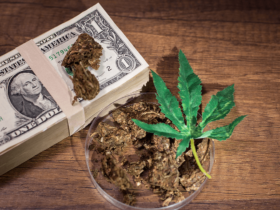

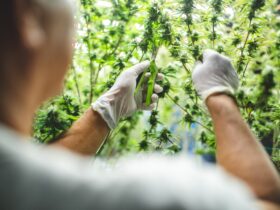




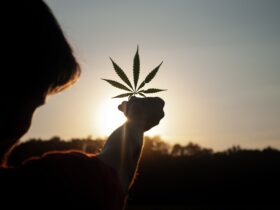

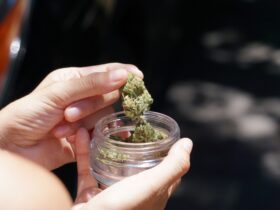

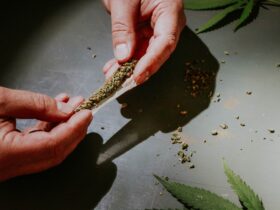
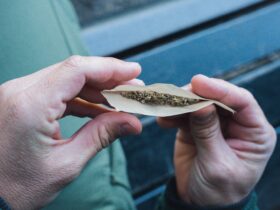
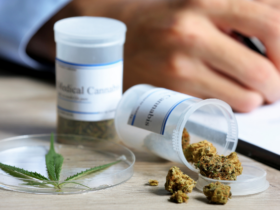
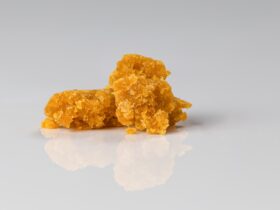
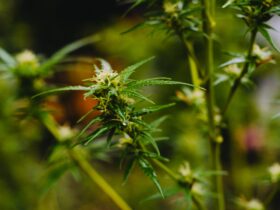




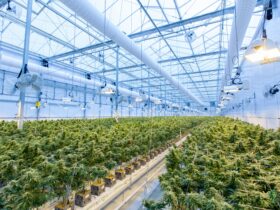
Leave a Reply